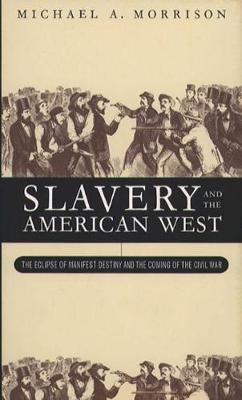Tracing the sectionalization of American politics in the 1840s and 1850s, Michael Morrison offers a comprehensive study of how slavery and territorial expansion intersected as causes of the Civil War. Specifically, he argues that the common heritage of the American Revolution bound Americans together until disputes over the extension of slavery into the territories led northerners and southerners to increasingly divergent understandings of the Revolution's legacy. Manifest Destiny promised the literal enlargement of freedom through the extension of American institutions all the way to the Pacific. At each step--from John Tyler's attempt to annex Texas in 1844, to the Kansas-Nebraska Act, to the opening shots of the Civil War--the issue of slavery had to be confronted. Morrison shows that the Revolution was the common prism through which northerners and southerners viewed these events and that the factor that ultimately made consensus impossible was slavery itself. By 1861, no nationally accepted solution to the dilemma of slavery in the territories had emerged, no political party existed as a national entity, and politicians from both North and South had come to believe that those on the other side had subverted the American political tradition. |A comprehensive study of how slavery and territorial expansion intersected as causes of the Civil War. Specifically, the disputes over the extension of slavery into the territories led to divergent understandings of the legacy of the American Revolution, the Union, and republican government.
- ISBN13 9780807847961
- Publish Date 30 August 1999 (first published 28 April 1997)
- Publish Status Active
- Out of Print 5 June 2021
- Publish Country US
- Imprint The University of North Carolina Press
- Edition New edition
- Format Paperback
- Pages 416
- Language English
